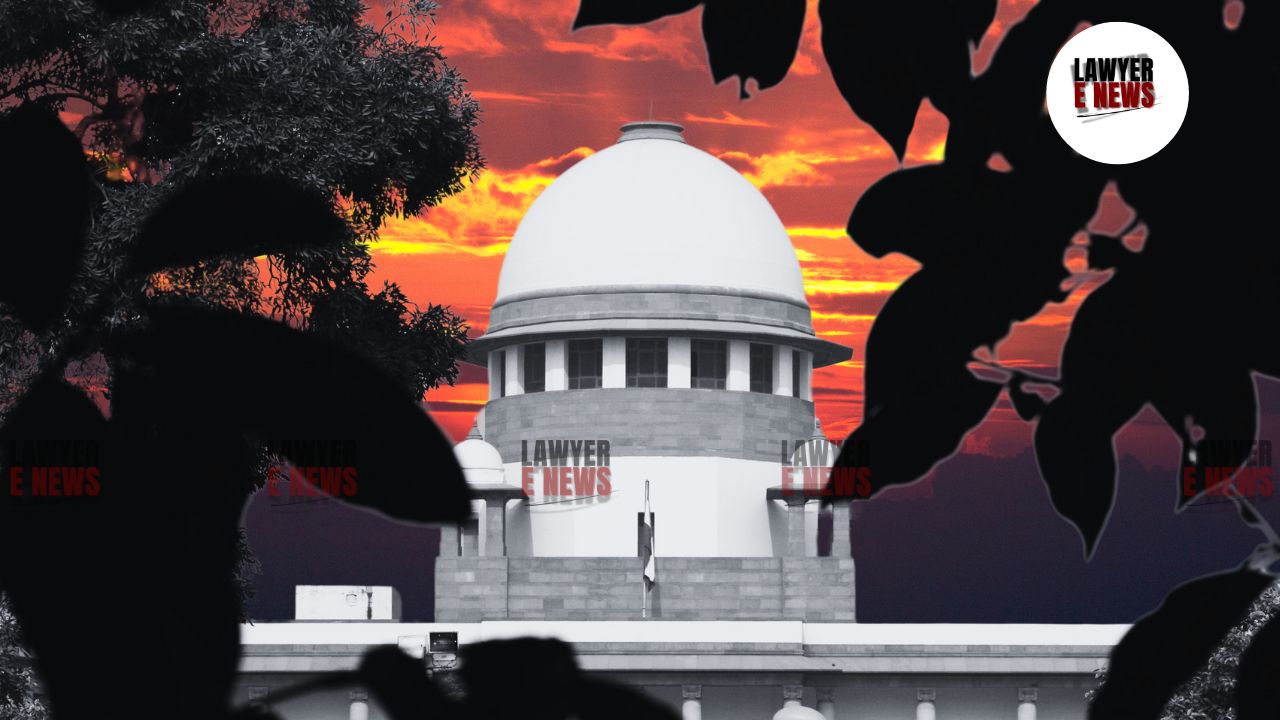-
by sayum
16 February 2026 8:46 AM



In a significant ruling, the Supreme Court of India has held that when awarding compensation in motor accident cases where the deceased was earning in foreign currency, the exchange rate on the date of filing the claim petition must be applied, not the rate on the date of the accident.
"Multiplier of 14 Must Apply Even for Foreign Salaries": Supreme Court Overrules High Court
The case revolved around a compensation claim filed by the husband and daughters of Lakshmi Nagalla, a U.S.-based software engineer who died in a road accident in Andhra Pradesh in 2009. The Tribunal had awarded ₹8,03,42,476 based on her monthly salary of $11,600, but the High Court reduced this to ₹5,75,68,982 by applying a lower multiplier of 10 instead of 14. The Supreme Court, however, ruled that as per National Insurance Co. Ltd. v. Pranay Sethi (2017) 16 SCC 680, "no exception is made for a person earning in foreign currency" and the multiplier must remain at 14.
On June 13, 2009, Lakshmi Nagalla was traveling in a Honda City when a bus owned by the Andhra Pradesh State Road Transport Corporation collided with her car, killing her instantly and injuring others. Her family sought compensation of ₹9 crore before the Motor Accidents Claims Tribunal (MACT), arguing that she was earning $11,600 per month as a software engineer in the U.S.
The Tribunal awarded ₹8.03 crore, including ₹2.35 lakh under conventional heads, applying a multiplier of 14. The Transport Corporation challenged this in the High Court, which reduced the compensation to ₹5.75 crore, reasoning that a lower multiplier should be used for foreign earnings, citing United India Insurance Co. Ltd. v. Patrica Jean Mahajan (2002) 6 SCC 281.
Unhappy with this reduction, the claimants approached the Supreme Court, raising two key legal issues:
Should the exchange rate for compensation be based on the date of the accident or the date of filing the claim?
Was the High Court justified in reducing the multiplier from 14 to 10 for a foreign earner?
Referring to Jiju Kuruvila v. Kunjujamma Mohan (2013) 9 SCC 166 and DLF Ltd. v. Koncar Generators & Motors Ltd. (2024 SCC OnLine SC 1907), the Court ruled that “the date of filing of the claim petition is the proper date for fixing the rate of exchange for computing compensation.” As the claim was filed in 2012, the Court applied the exchange rate of ₹57 per U.S. dollar, rejecting the High Court’s approach.
Citing Pranay Sethi and disagreeing with Patrica Jean Mahajan, the Court reaffirmed that for a deceased aged 43, the standard multiplier remains 14, regardless of whether their earnings are in Indian or foreign currency. “No exception is made for a person earning in foreign currency,” the bench ruled.
By restoring the higher compensation and clarifying the principles governing exchange rates and multipliers, the Supreme Court reaffirmed its commitment to fair compensation for accident victims. The ruling ensures that dependents of Indian professionals working abroad are not shortchanged due to arbitrary reductions in compensation. The appeal was allowed, and the High Court’s decision was modified accordingly.
Date of Decision: 11/02/2025
